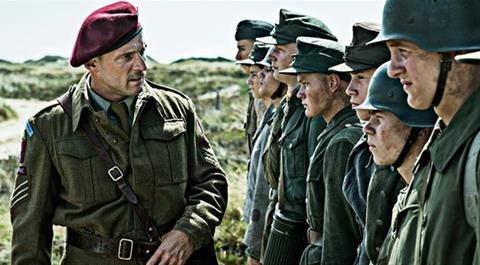Land Of Mine, based on the true story of mine clearance by German POWs in Denmark, makes its bow in TIFF’s Platform strand.

Martin Pieter Zandvliet’s Land Of Mine is that rare film that feels both epic and intimate. The Danish writer-director’s third feature tackles the large-scale tragedy of war and retribution while reminding us of the human connection between individuals of opposing backgrounds. K5 handles international sales on the German co-production, which screens as part of TIFF’s new Platform competition.
The story tackles a little-known chapter in Danish history, when German POWs, some only teenagers, were forced to clear 2 million German landmines — with their bare hands — from the west Danish coast following the German evacuation of Denmark at the end of the Second World War.
“I’ve always wondered about the ‘official’ Danish Second World War self-image of being the good but oppressed nation that did its utmost to help under the circumstances,” says Zandvliet. “But the Danes collectively repressed their hate of the German occupational forces for five years.”
While the narrative is fictionalised, many of the facts are not, not least the number of mines or that 2,000 people were assigned to the task — “and 900 of them blew up”.
The director did his own research and decided the focus of the story was not only the group of young Germans but also the Danish sergeant, Carl Rasmussen, assigned to supervise their work. Played by Roland Moller in his first leading role (with the actor delivering a meaty performance), Rasmussen becomes the film’s moral compass. “I always believed in the words he says,” asserts Zandvliet. “I believed in his anger.”
The young Germans were all played by amateur actors between the ages of 14 and 19, discovered through Berlin-based casting expert Simone Bär. With a budget of $5.4m (€4.8m), Land Of Mine is by far the film-maker’s biggest production to date, after Applause (2009) and A Funny Man (2011). All three films were produced by Mikael Rieks at Nordisk Film.
The director says the story is timely given the conflicts going on today. “In every war in every country, we have the aftermath,” says Zandvliet, whose upcoming projects include submarine rescue story Kursk for EuropaCorp and Noomi Rapace starrer The Great Americans. “It’s important we learn to forgive and look at each other with love instead — or at least not see everybody as the enemy.”
























No comments yet